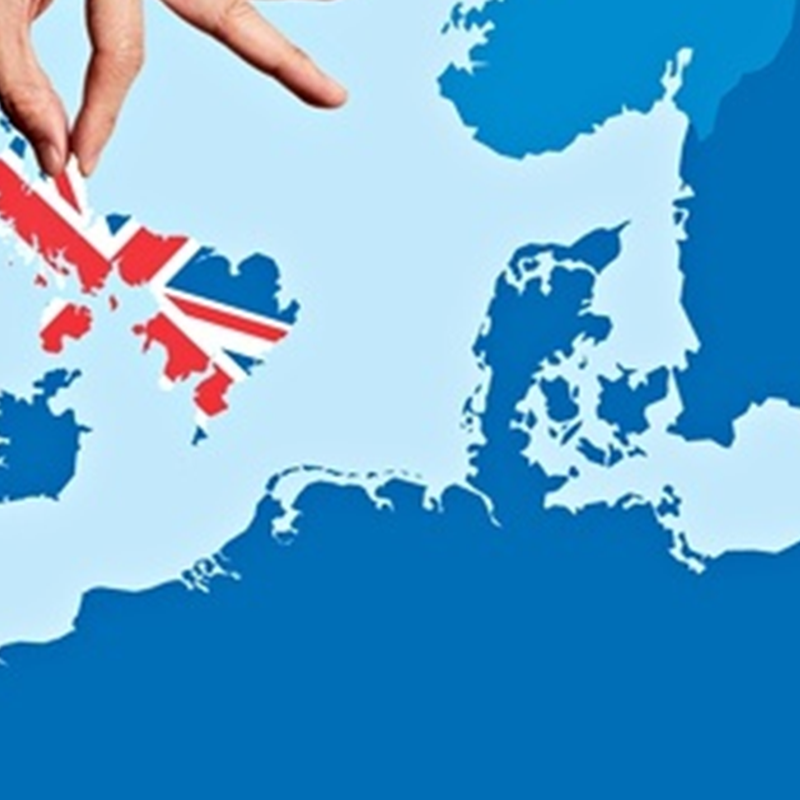Implications of Brexit
Mon June 27th 2016
Over the next few weeks, there will be a lot of information, analysis and views on the implications of Britain's surprise decision to vote for exiting the European Union (EU). Initial market reactions to the results were sharply negative, but encouragingly shares rallied over the course of our Friday night, reflecting some relative calm post the initial shock. For example, after initially falling 9%, UK shares rallied 6% during their day, closing down just 3%; while the US market closed down 3.5% after having initially fallen 5%. German shares also recovered 3% of their early losses, but notably still finished down 7%.
The effects were also felt beyond world share markets:
- NZ shares fell 2%, with Australian shares down 3%;
- The UK Pound dropped 7% against the US Dollar;
- Interest rates on NZ and US 10 year government bonds fell by around 0.25% (with bonds performing strongly as a result)
- The NZ Dollar fell 3% against the US Dollar before recovering to be down just 1%.
Overall, we estimate that the Balanced fund is currently down around 1% for the June quarter to date (after fees but before tax), with High Growth down less than 2% and Conservative close to flat.
What are the immediate implications of the vote to leave?
At the risk of stating the obvious, the UK will remain in the EU until they actually leave, which is expected to take at least two years to negotiate. Further, the resignation of David Cameron looks set to defer the start of these negotiations until at least October. However, the result creates a significant period of uncertainty, with three key unknowns:
1)How much will the uncertainty created affect investment and consumer spending in the UK?
2)Will the UK struggle to maintain the same level of access to Europe and other markets?
3)Will the result of this vote set off further political and economic fragmentation in the UK itself (a second referendum in Scotland appears likely), and more widely in Europe?
Markets do not like uncertainty, so we will see higher than normal volatility over the next few days and weeks. How long this continues will depend very much on the political resolve of all affected countries and already we are seeing calls for Britain to now just "get on with it!"
What are the implications over the medium term?
The process of exiting will be tricky. Retaining close trade ties between UK and the Eurozone is in the interest of all parties. However Germany, for example, will tread a fine line to ensure that Britain doesn't get a too-easy deal, which would increase the risk of further EU fragmentation. The difficulties of actually executing the exit, combined with the effects of the uncertainty created, are likely to result in:
- Downside risks for UK and European economic growth. Some forecasters are already lowering their UK GDP growth expectations for next year from 2% to 0% and taking 1% off Eurozone GDP growth;
- More support from central bankers, with lower interest rates and more Quantitative Easing likely in the UK, and a firm stance from the ECB;
- Interest rates (short and long term) now less likely to rise and may well set new record lows around the world;
- The UK Pound and the Euro may grind lower (although if this occurs it should help provide some support for export growth in the UK and Europe).
For the global economy as a whole, we need to remember that the UK itself makes up less than 3% of world GDP, 16% with the European Union included. While markets dislike uncertainty, across most of the world, economic fundamentals have not changed. In addition, a further extended low interest rate outlook adds a level of support for economies and markets. Through the UK's transition period, the level of business confidence (and therefore their willingness to hire and invest) will be a key factor to watch.
Looking forward
Market volatility often comes with opportunity, and we will be closely monitoring potential areas of value over the coming weeks and months. Our approach continues to be based on a medium to long term outlook, so much will depend on how the European political and economic situation evolves.
Leading up to the referendum, we continued to maintain the insurance protection in place over 10% of the global shares sector, which has helped mitigate the effects of Friday's declines. While retaining this protection for the time being, should markets decline significantly further we would be actively looking to realise gains on this strategy.
We will keep you up to date with any future developments.
The information contained in this report is given in good faith and has been derived from sources believed to be accurate. However neither Grosvenor Investment Services Limited (GISL) nor associated companies of the Grosvenor Financial Services Group Limited nor any of their employees or directors gives any warranty of reliability or accuracy nor accepts any responsibility arising in any other way for errors or omissions. This material has been prepared specifically for the exclusive use of advisers using the Grosvenor System and must not be provided to members of the public. This material is not to be published without GISL's prior consent. This report is not intended as promotional material and is not to be regarded as a securities recommendation.

Need our help?
We're here to answer your questions.
service@cavefinancial.co.nz
09 302 7310
1D Roberta Avenue
Glendowie
Auckland 1071
New Zealand


